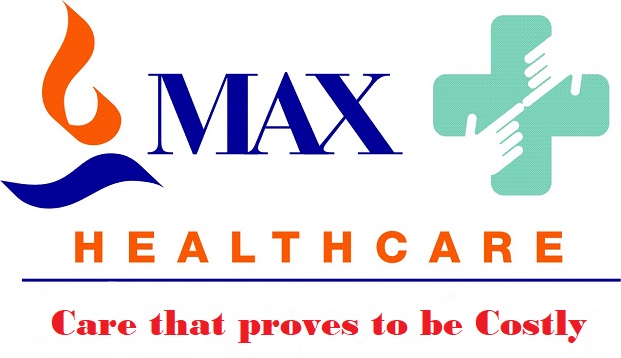December 7,2017:
Report provides indepth analysis of how Max Hospital extracting of such huge profits margins from inpatients was prevalent across all the 14 hospitals of Max Group.
Investigation by Deputy Director General of Competition Commission of India has concluded that the Max Super Speciality Hospital, Patparganj, has been making about 275% to 525% profit on the sale of the disposable syringes by abusing its dominant position to force the inpatients to buy such products from its own pharmacy.
CCI was looking into a complaint which was filed by a Patient’s Attendant, Vijay Sharma. Complainant states that he had bought a disposal syringe made by Becton Dickson India Ltd (BD) at a maximum retail price (MRP) of Rs 19.50 when it was available for Rs 11.50 in open market.
In January 2016, CCI found that the hospital and BD Ltd prima facie guilty of colluding to sell the syringes from Hospital’s pharmacy at double the open market price and asked its deputy director general to investigate this issue within 60 days.
Report, in fact, indicates that practice of the Corporate Hospitals making huge margins from the inpatients is widely prevalent.
After two years, Investigation Report prepared by the CCI Deputy Director General Rakesh Vashishth lays down the bare standard practice of the manufacturers selling devices to hospitals at a fraction of printed MRP at which hospitals sell to patients, raking in the “super-normal profits”.
BD Ltd’s submissions during the investigation admitted that this was “standard industry practice followed by all manufacturing companies in India”. The hospital too stated that “the sale of syringes at MRP is consistent with market practice followed by other hospitals generally”.
With both stating that they merely followed standard business practices, what emerges is that inpatients at private hospitals in India are being forced to pay up to five times the actual cost of medical devices or disposables like syringes, pushing up their bills enormously. In the private healthcare market, consumables and medicines constitute typically 40-50% of an inpatient’s bill.
CCI's Report further states that similar or the identical products were available in open market at a discounted rates, but since Hospital insisted on the inpatients procuring from its own pharmacy, it was a clear instance of abuse of dominant position and spatial monopoly enjoyed by Hospital in earning “super-normal profits”.
Thus the investigation has also fixed individual responsibility with Max Hospital.
A baby boy was declared dead by Max Hospital,Shalimar Bagh and was later found to be alive. The baby boy breathed his last on Wednesday, five days after his birth.
He died at a nursing home but the boy's family refused to accept the body stating that they will not conduct the final rites until the Max hospital’s licence is cancelled.
Picture Source :

























